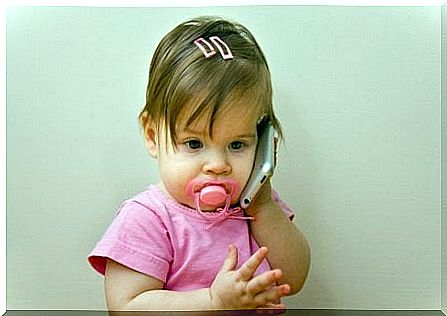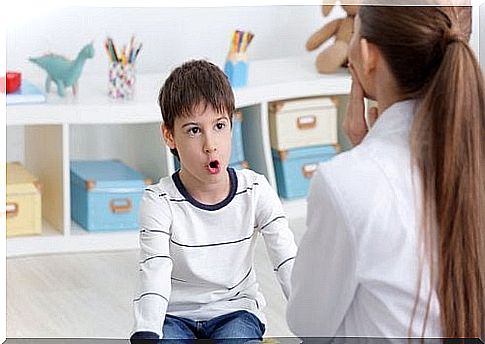Should I Be Concerned If My Child Is Not Talking Yet?

“How is it that my child does not speak yet or my child hardly speaks any words and he is already 2 years old.” It’s a dilemma many parents face when their little ones don’t say a single word. What should you do in this case?
It is true that there is an average age at which children say their first words.
However, each individual evolves at his or her own pace for each activity and this does not necessarily affect his or her ultimate development.
At an early age, man manifests conditions that will reveal the perfect sequence of their natural development.
For example, searching for voices with their eyes, chatting spontaneously, giggling, etc. These and other signals are indications that there are no problems with speaking or hearing.
Often the upbringing is the reason that your child does not make a sound or does not pronounce something correctly. In other words, your little one may be displaying this behavior simply out of laziness.
Why is my child not talking yet?
Despite this , that ever-present inner voice still says, “My child still doesn’t speak.” This can be very unsettling for parents. It’s hard to believe it’s a simple act of fickleness on the part of their child.
As a result, they wait a long time before consulting specialists and getting a diagnosis for their child.
If your child is already two and uses few or no words, it’s time to talk to your pediatrician. Your child’s doctor will be able to evaluate your child’s development.
Getting an early diagnosis is extremely important. Often a delay in speech development can be a sign of a more important problem.
Still, parents should guide each step of the process to ensure that language stimulation is positive for children.
Reading stories and having a constant conversation throughout the day strengthens communication from an early age. As a result, children improve their speaking skills.
Suggestions for parents of children with speech problems
The role of parents should be an active role. If your child appears to have delayed speech development, you should join and participate in the process of developing this ability.
- Children learn languages by hearing others speak, mainly through imitation. You will always be their best example. Speak slowly and clearly.
- Invest quality time in communicating with your children. Talk to your little ones from the moment they are born and as they grow up and invite them to imitate your sounds.
- Don’t celebrate if your child makes phonetic mistakes. You could accidentally amplify the error.
- Play. For example, teach your child the sounds different animals make. You can also imitate various motor vehicles: cars, trains, motorcycles, fire trucks, etc.

Signs Your Child May Have a Language Disorder
When is it time to be concerned that your child is still not using words? Pay attention to the following signs:
- If your child is 12 months and not yet using gestures such as waving.
- When your child is 18 months old and your son or daughter does not understand words or makes sounds.
- After 24 months , your child is not yet making simple sentences or only making sounds.
The most common causes of speech delays in children
Oral Factors
Problems with a child’s mouth, tongue, or palate are common causes of speech delays. Therefore, if your child shows a delay in speech, you should take him or her to a specialist in this field.
Auditory Factors
If children have trouble hearing, they may have trouble understanding the language around them. For that reason, they can make mistakes when pronouncing words and that is why a child does not speak yet.
Oral Motor Factors
Sometimes there is a problem in a part of the brain that is responsible for the articulation of speech. As a result, a lack of coordination between the tongue, lips and jaw occurs, which prevents a child from speaking.

When should I take my child to a specialist?
It often happens that parents don’t realize there’s a deeper problem going on when they wonder why their child isn’t talking yet.
However, once they understand that their child needs professional help to solve the problem, the road becomes much easier.
In most cases, your child’s pediatrician can evaluate the situation and identify the underlying cause of the speech delay. Once your doctor has determined the cause, he or she can recommend a specialist.
The early intervention of a speech therapist will help your little one develop positively.
Speech therapists are responsible for diagnosis, prevention and treatments related to speech and language. During treatment sessions, the professional will teach you therapeutic exercises to improve your child’s language skills.
He or she will also provide exercises to practice with your child at home to make the treatment more effective.








